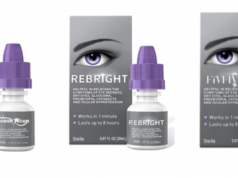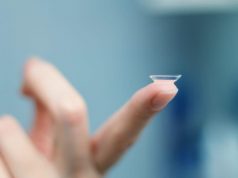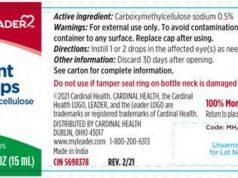Greater benefits seen with 0.01 percent dose over three years versus 0.02 percent dose
By Lori Solomon HealthDay Reporter
TUESDAY, June 6, 2023 (HealthDay News) — Low-dose atropine treatment reduces pediatric myopia progression compared with placebo over three years of treatment, according to a study published online June 1 in JAMA Ophthalmology.
Karla Zadnik, O.D., Ph.D., from The Ohio State University in Columbus, and colleagues assessed the safety and efficacy of NVK002, a novel, preservative-free, once-daily 0.01 percent and 0.02 percent low-dose atropine formulation for treating myopia progression versus placebo. The analysis included 573 randomly assigned pediatric participants (aged 3 to 10 years in the safety group, of whom 489 children aged 6 to 10 years were in the modified intention-to-treat group), from 23 sites in North America and five countries in Europe. Participants had â0.50 diopter (D) to â6.00 D spherical equivalent refractive error (SER) and no worse than â1.50 D astigmatism.
The researchers found that compared with placebo, low-dose atropine (0.01 percent) significantly increased the responder proportion (odds ratio, 4.54; 95 percent confidence interval, 1.15 to 17.97; P = 0.03), slowed mean SER progression (least squares mean [LSM] difference, 0.24 D), and slowed axial elongation (LSM difference, â0.13 mm) at the three-year mark. While 0.02 percent dosage also showed benefit, it was not associated with a significant increase in the responder proportion (odds ratio, 1.77; 95 percent confidence interval, 0.50 to 6.26; P = 0.37) nor slowed mean SER progression (LSM difference, 0.10 D), but it did slow mean axial elongation (LSM difference, â0.08 mm). Atropine was not associated with any serious ocular adverse events.
“Trial results show that the efficacy and safety observed may be supportive of a pharmacological treatment option for myopia progression in children,” the authors write.
Several authors disclosed ties to ophthalmic-biopharmaceutical companies, including Vyluma, which manufactures NVK002 and funded the study.
Copyright © 2023 HealthDay. All rights reserved.








